Prevent Food
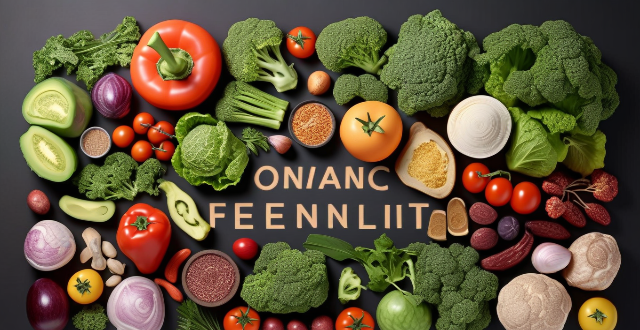
Can eating organic food prevent diseases ?
Eating organic food may offer some potential benefits for disease prevention, such as reduced exposure to pesticides and chemicals, higher antioxidant levels, and better nutrient content. However, the overall evidence supporting its ability to prevent diseases is limited, and other factors influencing disease risk should also be considered when making dietary choices. It is important to prioritize a balanced and varied diet rich in fruits, vegetables, whole grains, lean proteins, and healthy fats while minimizing intake of processed foods and sugary beverages.

What are the best practices for storing food to maintain its safety ?
Storing food safely is crucial to prevent foodborne illnesses and ensure that your meals are fresh and flavorful. Here are some best practices to follow when storing food: ### Refrigeration - Store raw meat, poultry, and seafood separately from other foods to avoid cross-contamination. Use airtight containers or wrap them tightly in plastic wrap. - Keep dairy products like milk, cheese, and yogurt on the upper shelves of the refrigerator, where the temperature is more consistent. - Store eggs in their original carton on a middle shelf to maintain a constant temperature. - Use leftovers within three to four days and store them in covered containers in the refrigerator. - Check expiration dates regularly and discard any expired products. ### Freezing - Label all frozen items with the date of freezing and the content. - Freeze meats individually before storing them together to make it easier to thaw only what you need. - Leave space around frozen items to allow for proper air circulation and faster freezing times. - Do not overload the freezer as this can cause uneven freezing and spoilage. ### Pantry Storage - Keep dry goods like grains, pasta, and cereals in airtight containers to prevent moisture and pests from getting in. - Store oils and vinegars away from direct sunlight to prevent rancidity. - Rotate pantry items regularly, placing new items behind older ones to use up older stock first. - Monitor for signs of pests and take immediate action if any are found. ### General Guidelines - Clean your refrigerator and freezer regularly to remove spills and prevent bacteria growth. - Wash hands thoroughly before handling food. - Use separate cutting boards for raw meats and vegetables to avoid cross-contamination. - Cook foods to their recommended internal temperatures to kill harmful bacteria.

How does proper handwashing technique prevent the spread of germs ?
Proper handwashing is a simple yet effective way to prevent the spread of germs. It involves using soap and water to clean your hands thoroughly, especially before eating or preparing food, after using the restroom, and after being in contact with someone who is sick. The key points on how proper handwashing technique can help prevent the spread of germs include: - Wet your hands with clean, running water (warm or cold), turn off the tap, and apply soap. - Lather your hands by rubbing them together with the soap. Be sure to lather the backs of your hands, between your fingers, and under your nails. - Scrub your hands for at least 20 seconds. Need a timer? Hum the "Happy Birthday" song from beginning to end twice. - Rinse your hands well under clean, running water. - Dry your hands using a clean towel or air dry them. By following these steps, you can effectively remove dirt, viruses, and bacteria from your hands, which can help prevent the spread of germs that cause infections like the common cold and flu. Additionally, proper handwashing technique can also help prevent the spread of more serious illnesses such as COVID-19, Ebola, and norovirus.

How do street food vendors keep their food safe and hygienic ?
Street food vendors play a crucial role in providing affordable and delicious meals to millions of people worldwide. However, ensuring that their food is safe and hygienic can be challenging due to various factors such as limited space, lack of proper equipment, and unpredictable weather conditions. In this article, we will discuss some effective ways street food vendors can maintain the safety and cleanliness of their food.

What are the key principles of food safety ?
The text outlines the key principles of food safety, which include cleanliness, avoiding cross-contamination, thorough cooking, proper storage, and using safe water and ingredients. By following these guidelines, individuals can reduce the risk of foodborne illnesses and ensure that their meals are safe for consumption.

How can consumers check if their food is safe to eat ?
Consumers can check if their food is safe to eat by checking expiration dates, looking for signs of spoilage, reading labels carefully, practicing proper food handling, and using a food safety app.
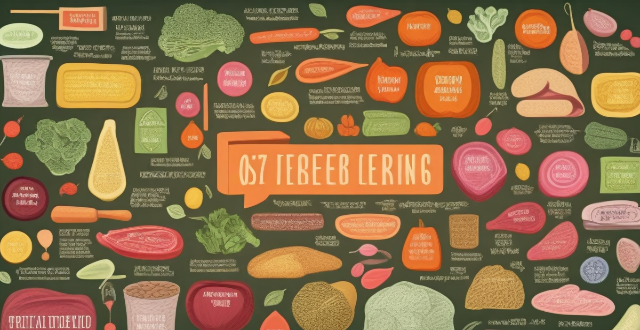
How does food labeling contribute to food safety ?
Food labeling is crucial for food safety as it provides consumers with essential information. It includes ingredient lists, nutritional information, expiration dates, manufacturing details, storage instructions, certification marks, allergy warnings, country of origin, precautionary statements, and environmental impact information. Proper labeling practices help identify ingredients, understand nutritional values, recognize potential risks, and make informed decisions about food consumption.
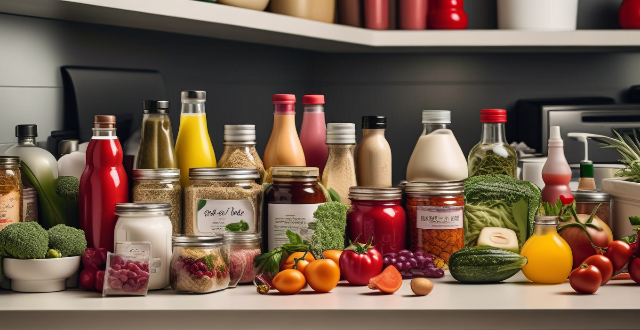
How can I reduce food waste in my kitchen ?
To reduce food waste in your kitchen, you can plan meals ahead of shopping, shop smart by making a list and buying fresh produce, store foods properly using airtight containers, understand expiration dates, preserve food through techniques like freezing and dehydrating, get creative with leftovers, practice portion control, and educate yourself on the environmental impact of food waste.
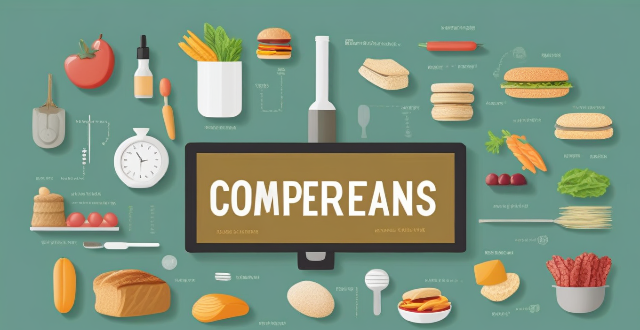
How can small food businesses ensure they are compliant with food safety regulations ?
The text provides a comprehensive guide on how small food businesses can ensure compliance with food safety regulations. It emphasizes the importance of compliance in protecting consumer health, avoiding legal consequences, and enhancing brand reputation. The steps for ensuring compliance include understanding the regulations, training staff, implementing GMP, using quality ingredients, monitoring and testing, and having a plan for non-compliance. Following these steps can help small food businesses meet legal requirements and assure customers of the highest standards in food safety, ultimately leading to customer loyalty and a strong brand reputation.
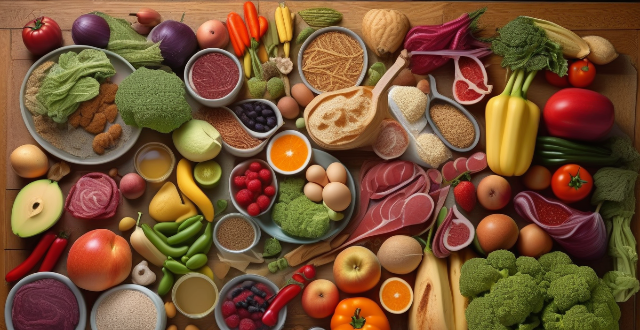
Why is personal hygiene important for those who handle or prepare food ?
Personal hygiene is critical for food handlers due to its impact on health, safety, and quality assurance. Cross-contamination and allergen transfer can lead to illnesses, while cleanliness affects food presentation and flavor. Handwashing, proper grooming, and workstation cleaning are essential practices to maintain hygiene.

How does temperature control affect food safety ?
This text discusses the impact of temperature control on food safety, emphasizing the risks associated with improper temperature management and the benefits of maintaining appropriate temperatures. It highlights the danger zone for bacterial growth, spoilage due to mold and yeast, and toxin production from bacteria. The article also outlines best practices for temperature control in refrigeration, freezing, cooking, reheating, handling, and storage to ensure food safety.

How can schools improve their food safety standards ?
Improving food safety standards in schools is crucial for protecting the health of students and staff. Here are some ways that schools can enhance their food safety practices: 1. Implement a HACCP System 2. Train Staff on Food Safety 3. Use Proper Handling and Cooking Techniques 4. Maintain Cleanliness and Sanitation 5. Enforce Strict Ingredient Sourcing Policies 6. Establish Clear Policies for Illness Reporting 7. Conduct Regular Audits and Reviews

What are the health benefits of eating street food ?
Eating street food can have several health benefits, including exposure to a wide range of flavors, nutrient-dense options, portion control, and cultural experiences. It's important to choose wisely and prioritize cleanliness and food safety when selecting street food vendors.
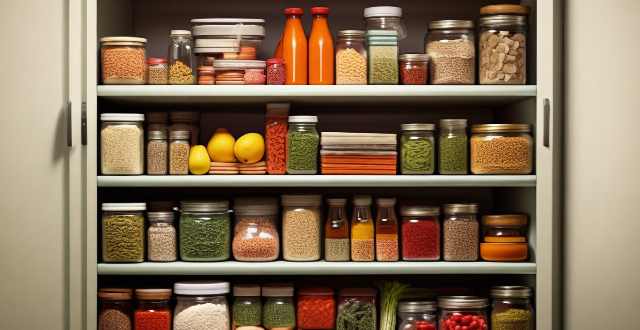
Why is temperature control important in food storage and preparation ?
Temperature control is crucial in food storage and preparation to ensure safety, quality, and longevity of food products. It prevents bacterial growth, avoids toxin production, maintains flavor and texture, preserves nutrients, extends shelf life, reduces waste, saves energy, and reduces environmental impact. Proper temperature control helps to enjoy delicious and healthy meals while minimizing the risk of foodborne illnesses and food waste.
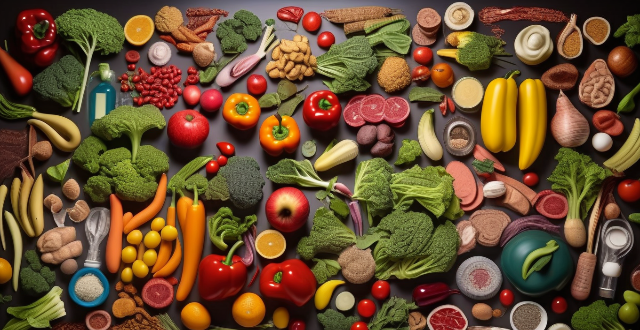
What role do food safety audits play in ensuring food quality ?
Food safety audits play a crucial role in ensuring food quality, identifying potential hazards and risks, ensuring compliance with regulations and standards, and maintaining customer trust. Companies should prepare for audits by reviewing relevant documents, conducting on-site audit activities, and following up with action plans to address any identified issues. By prioritizing food safety audits, companies can build a strong reputation for producing safe and healthy products, leading to increased customer loyalty and sales.

Will an iPhone screen protector prevent all scratches and cracks ?
An iPhone screen protector is a thin layer of material that is applied to the surface of an iPhone's display. It can prevent minor scratches and cracks, but it cannot prevent all damage. A high-quality screen protector can effectively prevent minor scratches from occurring on the surface of the iPhone's display. While a screen protector can help to prevent minor cracks caused by small drops or bumps, it may not be able to prevent more severe damage resulting from larger impacts or falls onto hard surfaces. Even the best screen protectors have their limitations and are not designed to withstand extreme force or repeated impacts. To maximize the lifespan of your iPhone's display, it is recommended to use a high-quality screen protector in conjunction with a protective case and to handle your device with care.

How does proper cooking and baking contribute to food safety ?
Food safety is crucial for maintaining public health and preventing illnesses. Proper cooking and baking are vital components of food safety, as they can destroy harmful microorganisms that may contaminate raw ingredients. High temperatures during cooking and baking kill most bacteria, reduce viruses, and eliminate parasites. Additionally, proper cooking practices prevent cross-contamination by using separate utensils and cutting boards for different types of food. To ensure food safety during cooking and baking, it's essential to use a food thermometer to check the internal temperature of cooked foods, follow recipes and time guides, keep work surfaces and equipment clean, store raw and cooked foods separately, avoid overcrowding pans, and refrigerate leftovers promptly. By adopting these best practices, you can significantly minimize the risk of foodborne illnesses and enjoy safe, delicious meals.

What steps can restaurants take to ensure the safety of their food ?
Food safety is a critical aspect of the restaurant industry, involving handling, preparing, and storing food in ways that prevent contamination and foodborne illnesses. Restaurants can ensure food safety by following these steps: proper handling and storage, cooking and preparation techniques, maintaining cleanliness and sanitation, implementing food safety training and policies, and working with reliable suppliers and implementing quality control measures. By following these steps, restaurants can minimize the risk of foodborne illnesses and provide their customers with safe and delicious meals.
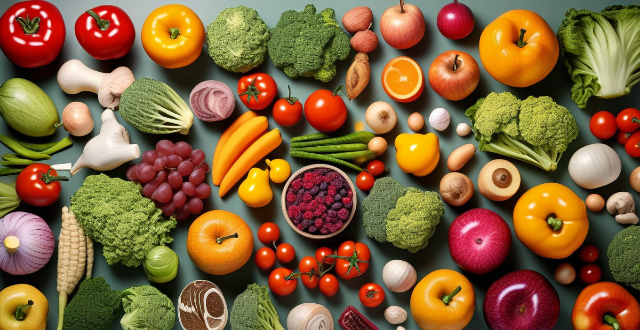
What are the key principles of food hygiene and safety ?
Food hygiene and safety are crucial in preventing foodborne illnesses and ensuring the well-being of consumers. Key principles include personal hygiene such as washing hands thoroughly, covering cuts and sores, avoiding contaminating surfaces, and wearing appropriate clothing; food handling including keeping food at safe temperatures, cooking food thoroughly, using separate utensils, and avoiding reusing cooking oil; sanitation such as cleaning equipment regularly, sanitizing surfaces, and controlling pests; and storage such as storing food properly, refrigerating leftovers promptly, and labeling and dating products. By following these principles, you can help protect yourself and others from foodborne illnesses and enjoy safe, healthy meals.
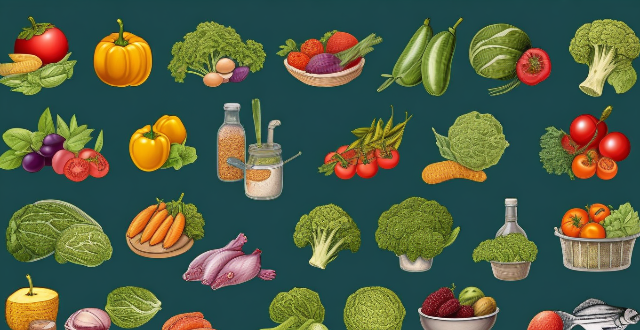
What is the significance of personal hygiene in food handling ?
Personal hygiene is crucial for food safety, public health protection, and maintaining quality in the food industry. It prevents cross-contamination, reduces disease transmission, and enhances food quality. Adherence to personal hygiene standards impacts regulatory compliance, consumer trust, and economic implications within the food industry.

What is the relationship between climate variability, pest outbreaks, and food safety ?
Climate variability can lead to increased pest populations, impacting food safety through contamination, physical damage, and toxin production. Effective monitoring, integrated pest management, and adaptation strategies are crucial to address these challenges.
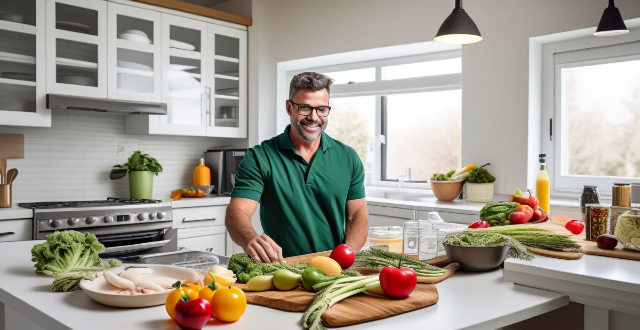
What is the role of preservatives and additives in food safety ?
Preservatives and additives play a crucial role in ensuring food safety by maintaining the quality, extending shelf life, and preventing the growth of harmful microorganisms. These substances are added to food products during processing or packaging stages to achieve specific goals such as preventing microbial growth, maintaining quality and freshness, enhancing flavor and appearance, improving nutritional value, and providing convenience and safety for consumers. It is essential to use these substances judiciously and within recommended limits to avoid any adverse health effects.
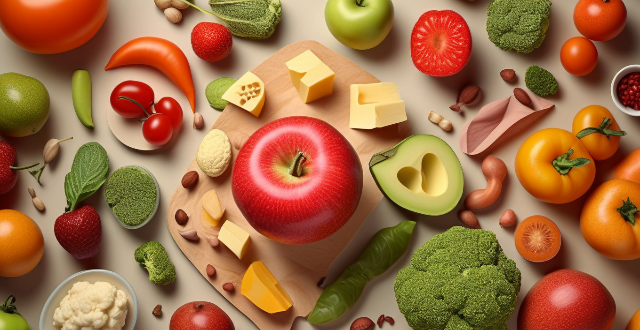
How important is composition in food photography ?
Composition is essential in food photography for creating visually appealing images. Techniques such as focusing on the subject, using negative space, incorporating leading lines, following the rule of thirds, and experimenting with color and contrast can enhance the visual appeal of food photographs.

What is the significance of traceability in the food supply chain for food safety ?
Traceability in the food supply chain is crucial for food safety, enhancing transparency, facilitating recalls, improving quality control, supporting regulatory compliance, enabling better risk management, and promoting sustainable practices.

How are food safety regulations enforced by governments ?
Governments around the world enforce food safety regulations through various methods, including legislation and policy development, inspection and compliance checks, licensing and certification, education and training, penalties and enforcement actions, public communication, and international cooperation. These efforts aim to protect consumers from harmful substances and contaminants in food products while promoting fair trade practices among producers and retailers.

Is there a risk of food poisoning from eating raw or undercooked foods ?
There is a risk of food poisoning from eating raw or undercooked foods due to the presence of harmful bacteria, viruses, or parasites. To minimize this risk, it is essential to follow proper food handling and cooking practices, such as washing hands thoroughly, keeping raw and cooked foods separate, cooking foods to the appropriate temperature, and avoiding eating raw or undercooked meat, poultry, seafood, and eggs. By taking these precautions, you can help protect yourself and others from the adverse effects of food poisoning.

What strategies can be implemented to mitigate the effects of climate change on food systems ?
Strategies to Mitigate the Effects of Climate Change on Food Systems include sustainable agriculture practices, agroforestry and reforestation, climate-resilient crop breeding, livestock management, food waste reduction, policy and advocacy, and research and development. These efforts aim to build more resilient food systems capable of withstanding the challenges posed by climate change, ensuring food security for future generations.
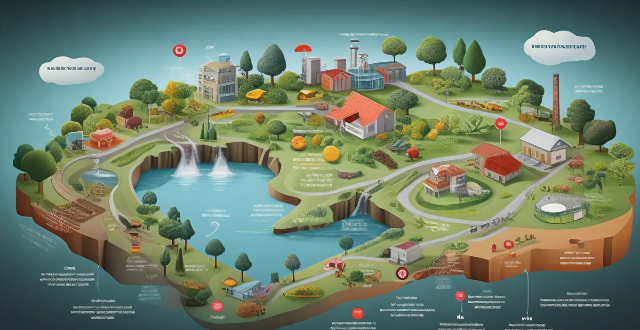
How does climate change affect agriculture and food security ?
Climate change significantly affects agriculture and food security by increasing extreme weather events, altering crop yields and quality, impacting livestock, and raising concerns about food access, affordability, and biodiversity loss. Adaptation and mitigation strategies such as sustainable farming practices, water management, genetic research, and policy initiatives are essential to build a resilient food system.